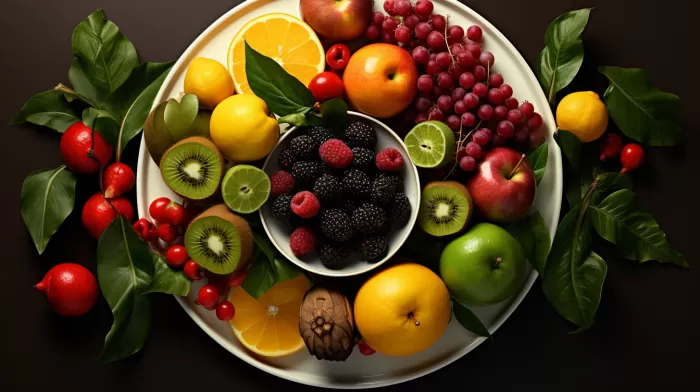You may have heard the phrase, “An apple a day keeps the doctor away,” but did you know that it’s now been scientifically proven that incorporating eight servings of fruit into your daily diet can keep cancer at bay? Specifically, studies have shown that consuming a diverse range of fruits on a daily basis significantly lowers your risk of developing lung cancer—the effect is even stronger in smokers. In this article, we’ll dive deep into the research behind these findings and learn how including a variety of fruits on your plate can make a world of difference.
The Granada Cancer Registry Report
Researchers from the Granada Cancer Registry at the Andalusian School of Public Health have presented a report, which is especially important considering lung cancer is one of the most common types of cancer worldwide. María José Sánchez Pérez, the head researcher, explained that this study aimed to delve more deeply into the relationship between diet and lung cancer. What they found was that not only the amount of fruit consumed, but also the variety played a significant role in reducing cancer risk.
The analysis showed that a higher variety in fruit and vegetable consumption reduced the risk of developing epidermoid carcinoma of the lung. For every additional two units of fruit and vegetables added to daily consumption, there was a 9 percent reduction in risk. This effect was most pronounced among smokers, with their risk dropping by around 12 percent.
Why is Variety Important?
Simply put, different fruits contain different types and concentrations of cancer-fighting nutrients. For example, many berries are high in antioxidants such as vitamin C and anthocyanins, which can help neutralize harmful free radicals in the body. Citrus fruits are rich in flavonoids, which have been shown to inhibit the growth of cancer cells and act as anti-inflammatory agents. Apples, on the other hand, are filled with pectin and quercetin, both of which have been associated with cancer prevention.
By diversifying the fruits you consume, you are essentially providing your body with a broader range of nutrients, phytochemicals, and antioxidants—all of which can work together to prevent the development of cancer. This synergy of different nutrients in your diet can be a powerful tool for keeping tumors at bay.
Tips for Increasing Variety in Your Fruit Intake
Incorporating a wider range of fruits into your daily meals might be easier than you think. Here are some tips to help you embrace the rainbow of fruit options available:
- Shop seasonally: Not only will the produce taste better and fresher, but shopping seasonally also allows you to try different fruits as they become available throughout the year. This will naturally add more variety to your diet.
-
Experiment with new fruit: Have you ever tried a dragon fruit or a persimmon? Head to a local farmer’s market or international grocery store to find some exotic fruits you may never have tasted before. Challenge yourself to cook and enjoy something new.
-
Add fruit to every meal: Find ways to incorporate fruit into your breakfast, lunch, dinner, and snacks. For instance, toss blueberries into your morning oatmeal, add slices of pear to your lunchtime salad, and serve a fruit salad as a side dish for dinner.
-
Blend your way to variety: Smoothies are a quick and easy way to pack multiple fruit servings and a range of flavors into one drink. Try combining fruits like strawberries, mangoes, and oranges, or go adventurous with more unusual combinations like pineapple, spinach, and ginger.
-
Preserve your favorites: Stock up on your favorite fruits when they are in season and freeze them for later use. Frozen fruits can be added to smoothies, baked goods, or as toppings for yogurt and oatmeal.
Remember that variety is the key to unlocking the full cancer-fighting potential of fruits in your diet. So go ahead and indulge in those eight servings a day. Not only will you be enjoying delicious and nutritious meals, but you’ll be taking a proactive step towards keeping cancer at bay.



